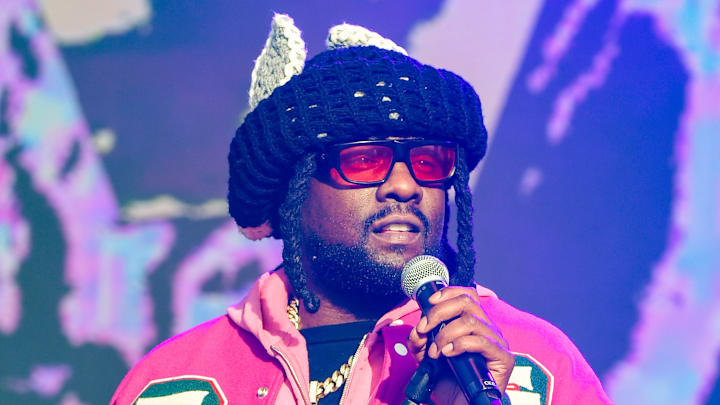Hip-hop has always been a space where artists share their stories, struggles, and triumphs. But for some, the line between personal vulnerability and public perception can be tricky to navigate. Recently, Wale opened up about why he decided to stop sharing his personal struggles with people in the music industry, revealing a story that sheds light on trust, timing, and the realities of rap culture.
Wale’s experience reminds fans that even within rap, where camaraderie is often celebrated, artists have to protect themselves emotionally. Opening up to a friend in the industry can feel risky when words and timing can be misinterpreted, especially in a world where every song is dissected by fans and the media.
His candid reflection gives a rare look into the mental and emotional side of hip-hop life.
Wale explains why he keeps personal struggles private in hip-hop
We’ll explore why Wale’s approach to vulnerability changed, how it relates to his interactions with J. Cole and Kendrick Lamar, and what the story tells us about trust, communication, and relationships in the rap industry. For fans of hip-hop and rap, this story highlights the balance between honesty and self-preservation in an environment where every move can make headlines.
During an interview on The Breakfast Club, the 41-year-old rapper shared that only two industry peers ever received his deepest personal thoughts: Kendrick Lamar and J. Cole. However, that trust shifted after an experience that left him feeling exposed. Wale recalled, "I remember I called Kendrick around that time… I was getting ready to have my child. I talked to Cole. That was probably the only two times I really leaned on an industry person."
The situation Wale referenced involved J. Cole’s 2016 track "False Prophets", which many fans believed referenced Wale.
"But the crazy thing is 'False Prophets' came out the next day," Wale said. Although he emphasized he didn’t take the song personally, the timing felt off, especially since Cole never mentioned the track during their conversation. "But I ain't take it though, you know what I'm saying," Wale continued. "He said it's not really about me, but whatever."
Wale made it clear that he wasn’t accusing Cole of intentionally targeting him. The experience, however, changed how he interacts with peers in the rap industry.
"All I'm saying is I love him, that's my brother. I think I kind of halted telling any industry person anything too deep," Wale explained. The episode demonstrates how trust and timing play crucial roles in the relationships between hip-hop artists, even among close friends.
"False Prophets" reflects on the rap game, fame, and ego, with verses aimed at unnamed artists. Many fans speculated that one verse referenced Wale, which aligned with his feelings at the time of being misunderstood and overlooked despite a loyal fan base. This story underscores the complicated dynamics of vulnerability in the music industry, especially in a genre where lyrics can be interpreted as both art and personal commentary.
